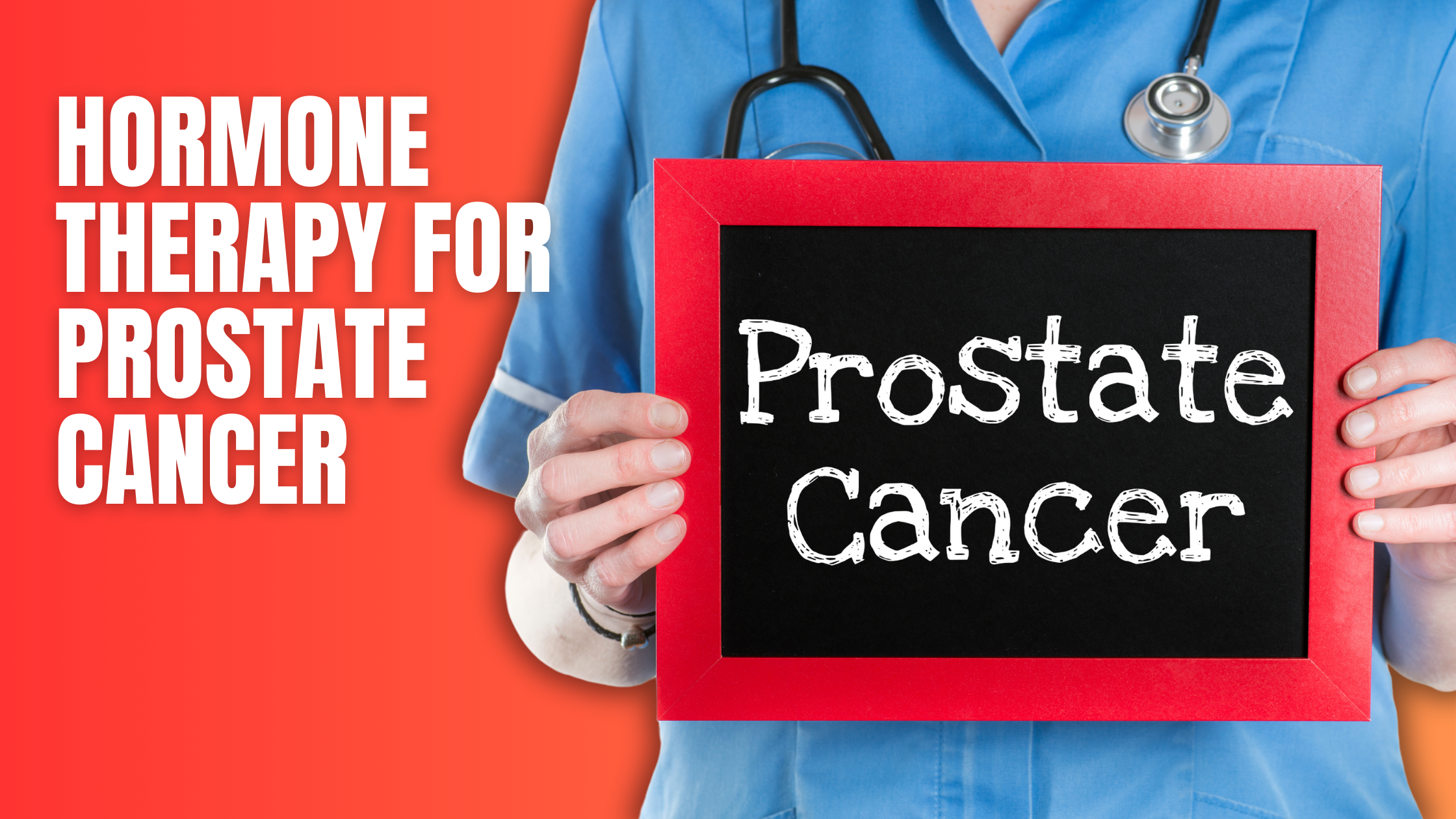Hormone Therapy for Prostate Cancer: Insights and Innovations
Hormone Therapy for Prostate Cancer: Explore types, effectiveness, and risks. Understand how it manages advanced stages and combats recurrence.
Prostate cancer remains a significant health issue affecting millions globally. One of the primary treatments for managing advanced stages of this disease is hormone therapy. This comprehensive guide, presented by Health Search Hub, aims to delve into the various aspects of hormone therapy for prostate cancer, explaining its importance, mechanisms, and when it is most effectively employed.
What is Hormone Therapy?
Hormone therapy for prostate cancer involves reducing or stopping the production of androgens, such as testosterone, which can fuel the growth of cancer cells. This treatment can take various forms, from medications that alter hormone production to surgical options that physically remove hormone-producing glands.
Types of Hormone Therapy
Orchiectomy
This surgical procedure involves the removal of the testicles, which are the primary source of testosterone. It’s a permanent form of hormone therapy often chosen for its immediacy and effectiveness.
LHRH Agonists
Drugs like leuprolide, buserelin, and goserelin decrease testosterone production by interfering with signals from the pituitary gland. They are among the most commonly prescribed treatments for managing prostate cancer.
LHRH Antagonists
These include drugs like degarelix and the orally taken relugolix, which block the pituitary gland from producing luteinizing hormone without the initial surge in testosterone that agonists might cause.
Antiandrogen Therapies
This category includes androgen receptor blockers and androgen synthesis inhibitors such as abiraterone, ketoconazole, and aminoglutethimide, which reduce the ability of androgens to stimulate cancer cells.
When is Hormone Therapy Used?
Hormone therapy is typically utilized in stages 2 through 4 of prostate cancer, mainly when the cancer is high risk, has spread beyond the prostate gland to other parts of the body, or has returned after initial treatment. It can be used alone or with other therapies, such as radiation.
Effectiveness of Hormone Therapy
Hormone therapy has been a cornerstone in the management of advanced and metastatic prostate cancer. It can significantly slow the progression of the disease and alleviate symptoms, although it is not considered curative. Over time, some cancers may develop resistance to this therapy.
Risks and Side Effects
Common side effects include hot flashes, erectile dysfunction, and weight gain. More severe risks involve cardiovascular disease, osteoporosis, and changes in mood and cognition. Patients must discuss these potential side effects with their healthcare provider and find strategies to manage them.
Procedures and Preparation
The specifics of hormone therapy procedures vary depending on the type chosen. Patients may undergo surgery under general anesthesia or receive periodic injections or oral medications for orchiectomies. Preparation might include health screenings and discussions about anesthesia risks and recovery expectations.
Recovery and Cost
Recovery times and activities post-treatment can vary, mainly if surgery is involved. The cost of hormone therapy can range significantly based on the type of treatment and geographic location, with insurance typically covering medically necessary procedures.
Alternative Treatments
Other treatment options for prostate cancer include radiation therapy, chemotherapy, and newer targeted therapies. Each has its benefits and limitations, which should be considered in consultation with oncology specialists.
Frequently Asked Questions
What stages of prostate cancer is hormone therapy used for?
Hormone therapy is used for treating prostate cancer, primarily in stages 2 to 4. It is beneficial in cases where the cancer is high risk, has metastasized (spread to other parts of the body), or has returned after previous treatments. Hormone therapy can also be used as an adjunct to radiation therapy or as part of a combined modality treatment plan to improve outcomes in these advanced stages.
How long do patients typically stay on hormone therapy?
The duration of hormone therapy can vary widely depending on the individual case, the goals of treatment, and how the cancer responds. For men with advanced prostate cancer, hormone therapy may be a long-term treatment extending over several years. In situations where hormone therapy is used as an adjuvant to other treatments like radiation, it might be prescribed for a shorter duration, typically a few months to a couple of years.
Can hormone therapy cure prostate cancer?
Hormone therapy does not cure prostate cancer. Its primary purpose is to manage the disease by slowing its progression and alleviating symptoms associated with high levels of androgens, like testosterone, which prostate cancer cells usually require to grow. While hormone therapy can significantly improve quality of life and control cancer growth, it is often used in conjunction with other treatments to manage the disease more effectively.
What lifestyle adjustments should be considered during treatment?
During hormone therapy, several lifestyle adjustments can help manage side effects and improve overall health:
- Diet and Nutrition: Adopting a balanced diet rich in fruits, vegetables, whole grains, and lean proteins can help manage weight gain and support overall health.
- Exercise: Regular physical activity can help mitigate side effects such as muscle loss, weight gain, and bone density loss.
- Bone Health: Supplements and medications may be recommended to support bone density, as hormone therapy can weaken bones.
- Mental Health: Support groups, counseling, and potentially medication can help manage the emotional and psychological impacts of cancer treatment.
- Monitoring: Regular follow-up appointments with healthcare providers are crucial to monitor the effectiveness of the therapy and adjust the treatment plan as needed.
Each patient’s situation is unique, so it’s important for individuals undergoing hormone therapy to work closely with their healthcare team to tailor lifestyle adjustments to their specific needs.
Hormone therapy remains a vital treatment for prostate cancer, particularly in its advanced stages. Patients are encouraged to thoroughly discuss all available options with their healthcare team to tailor a treatment plan that offers the best possible quality of life and disease management. Health Search Hub continues to provide valuable insights and updates on all aspects of prostate cancer care.

